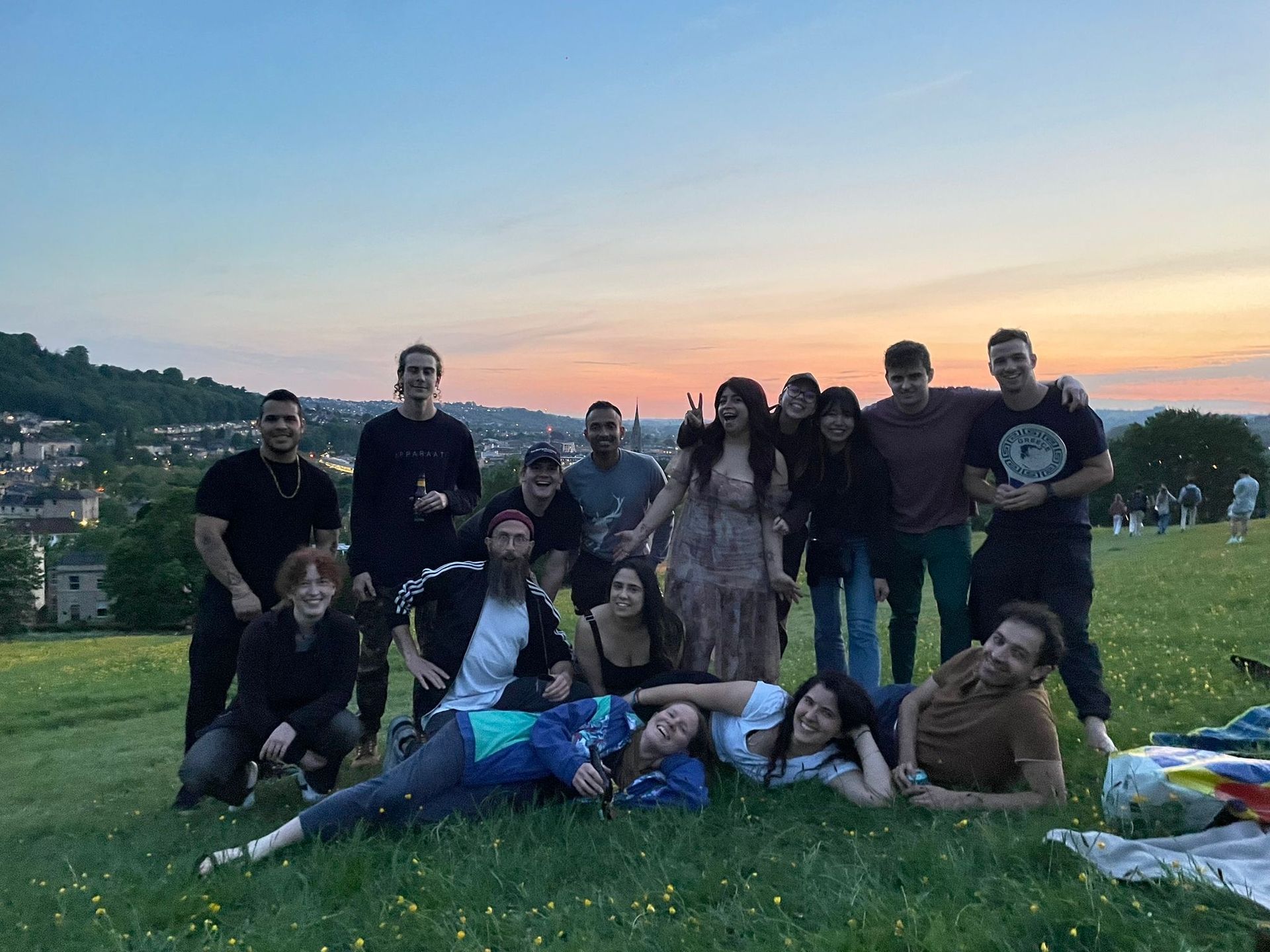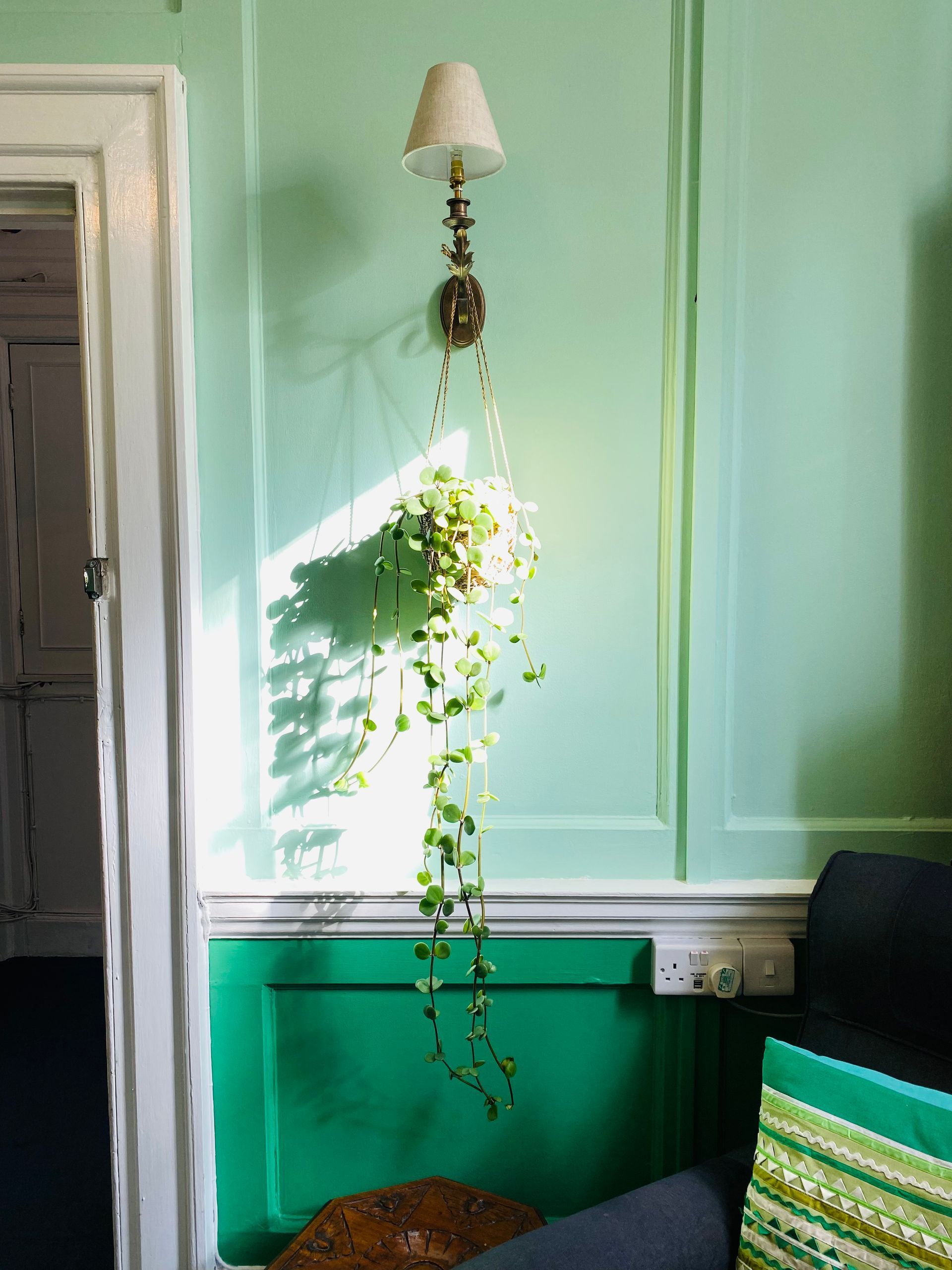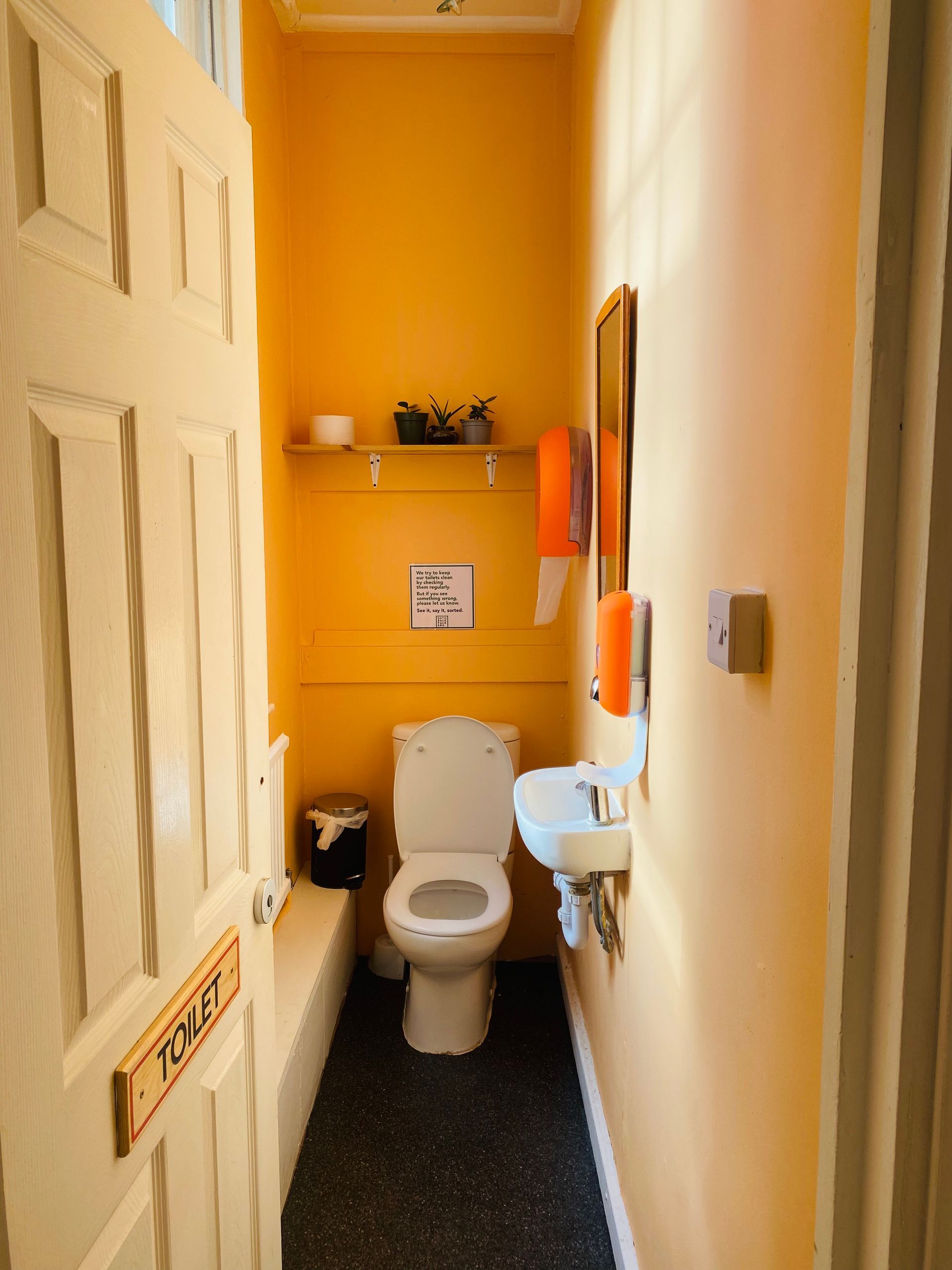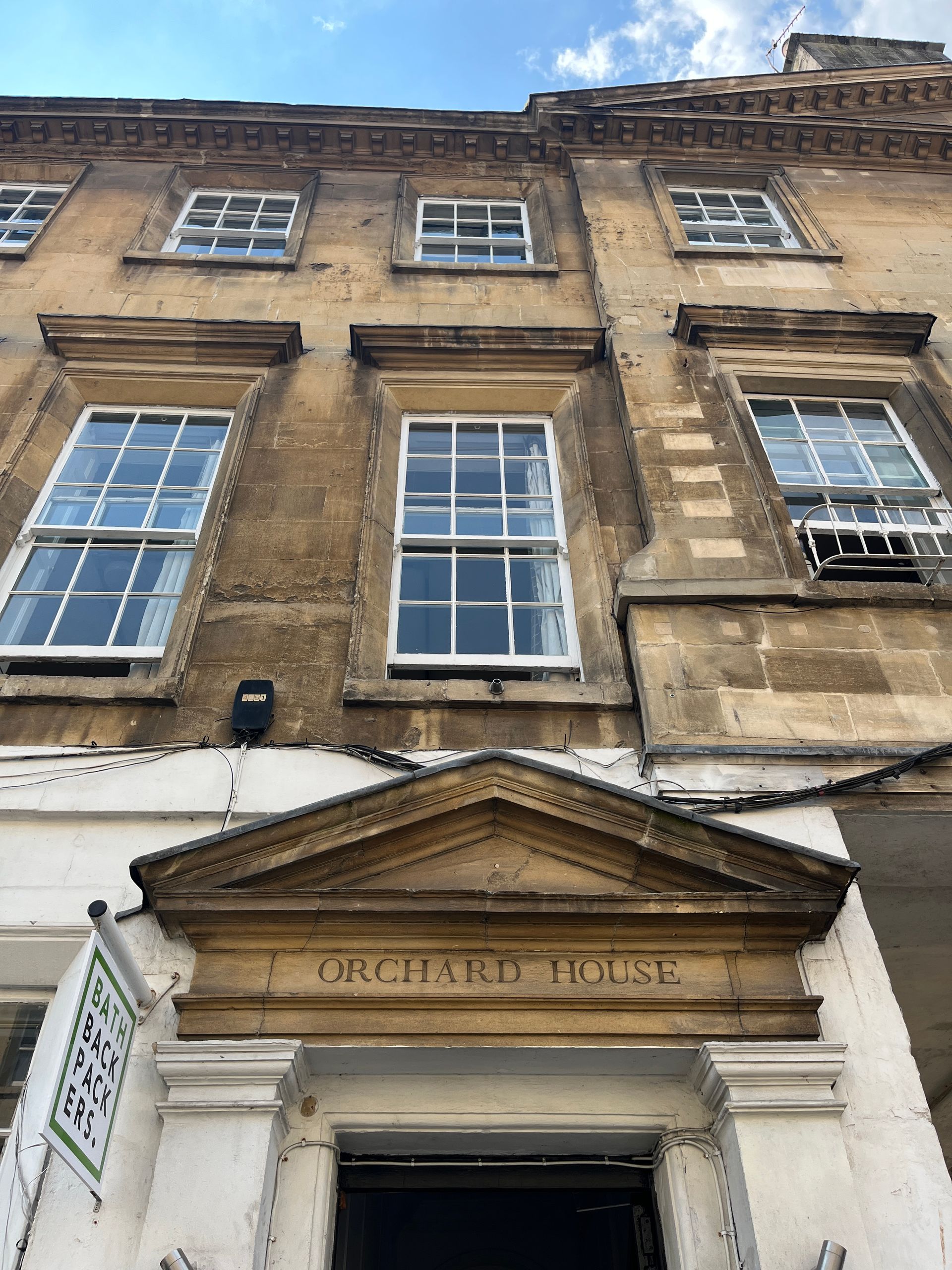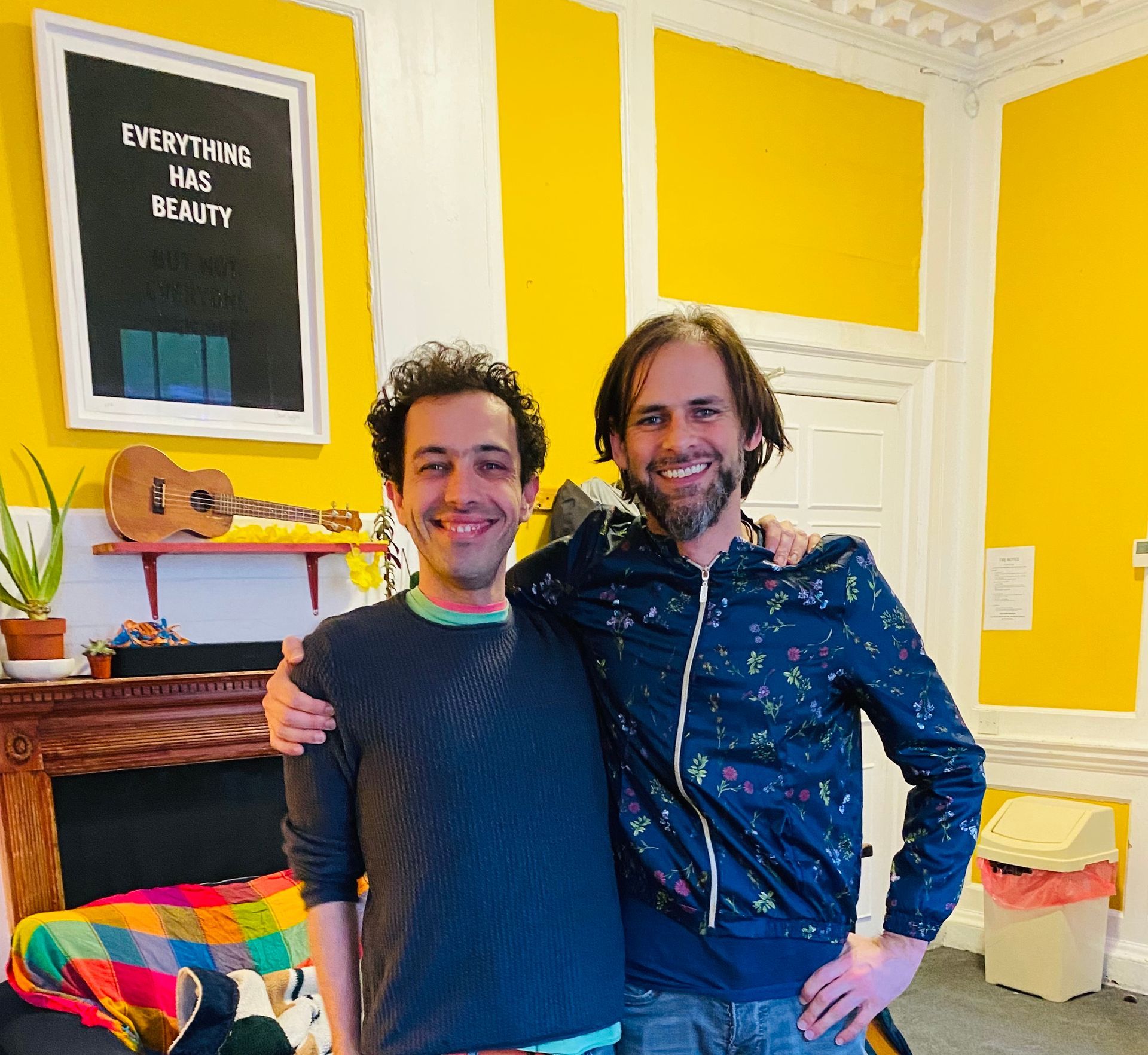Remove, Restore, Rename
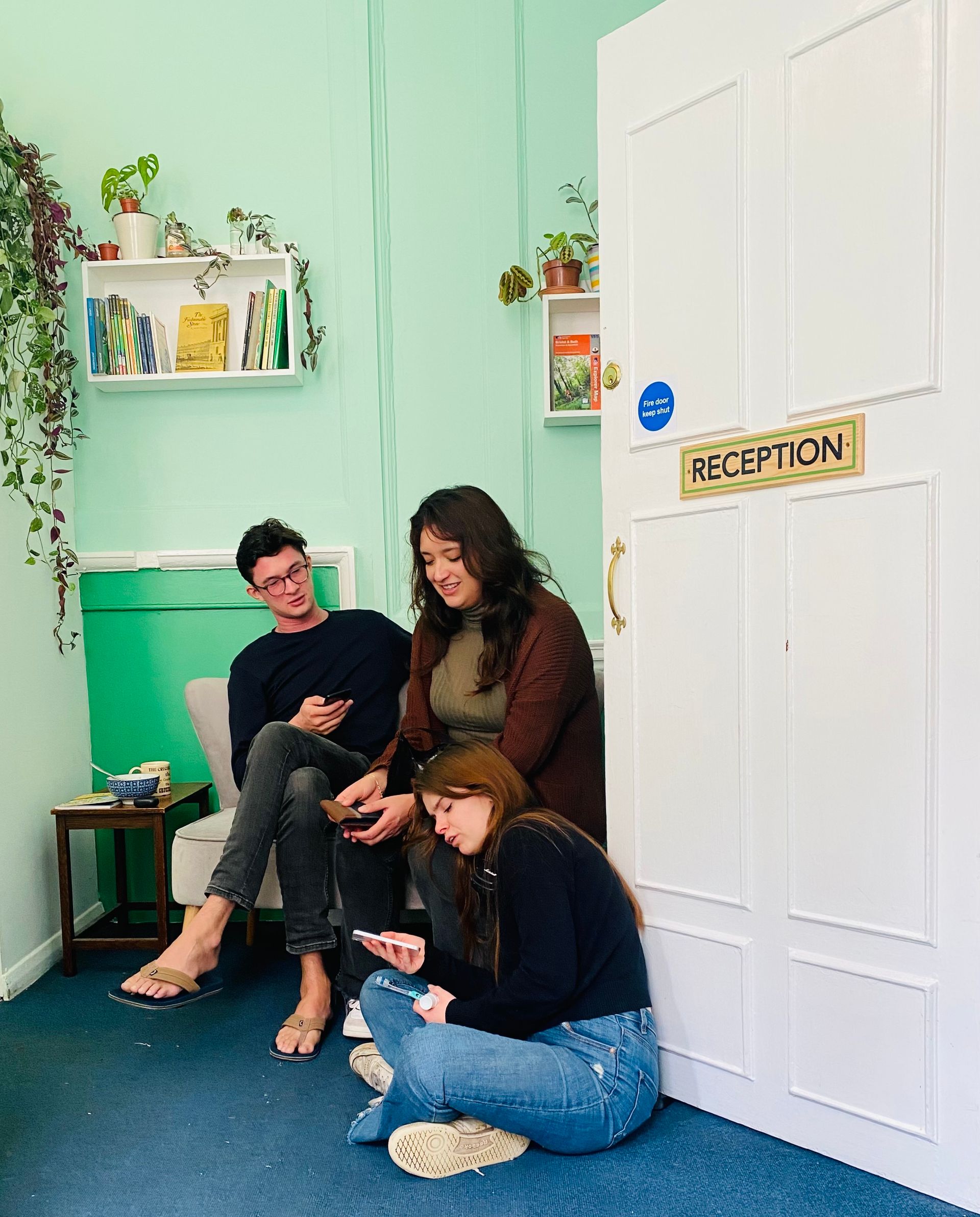
The dorm room names we inherited when taking over Bath Backpackers formed a chaotic patchwork of Roman emperors, historic local figures, and different words for water that did nothing to offer guests a sense of harmony. People were fond of Jane Austen, and Aqua had a calming appeal, but “you’re in Brutus” always had a ring of punishment when we checked in guests. Julia got around this with, “you’re in the dorm, ‘Brutus’” - rendering the violence of the name a bit less, well, brutal. Still, we decided early on that we wanted to change the room names to make them more coherent and relevant, and while we were at it, we thought we may as well restore and paint our doors too.
After six months of planning, designing and labour all rooms had beautifully-restored doors, complete with their lovely new names. Job done, we thought. But no. Only days after we re-christened our ground floor dormitory, we discovered we had given it a name celebrating the worst of Britain’s past. We had to think again.
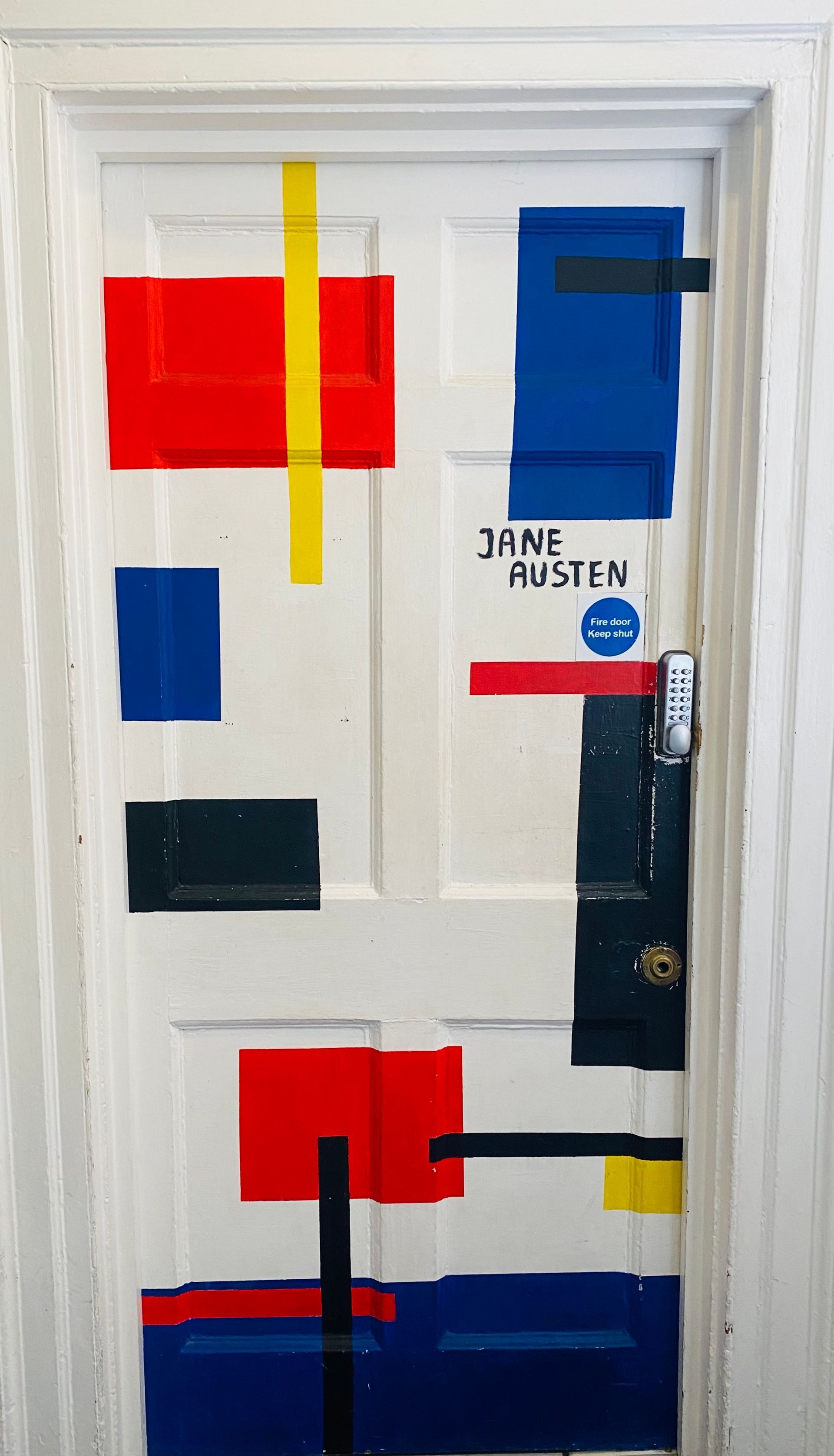
Dorm room doors used to announce their presence loudly, with bold colour blocks in black, blue, red and yellow, on a dirty white background. Mondrian is an important artist but that doesn’t mean his style belongs on our doors. Meanwhile the Kitchen, Common Room and Reception doors hosted a variety of real and imaginary animals in pastel colours: flamingos coexisted with flies, axolotls lived beneath a mysterious four-legged octopus. Beetles and bugs abounded. Before we could actually change the room names, our doors needed deep care and attention.
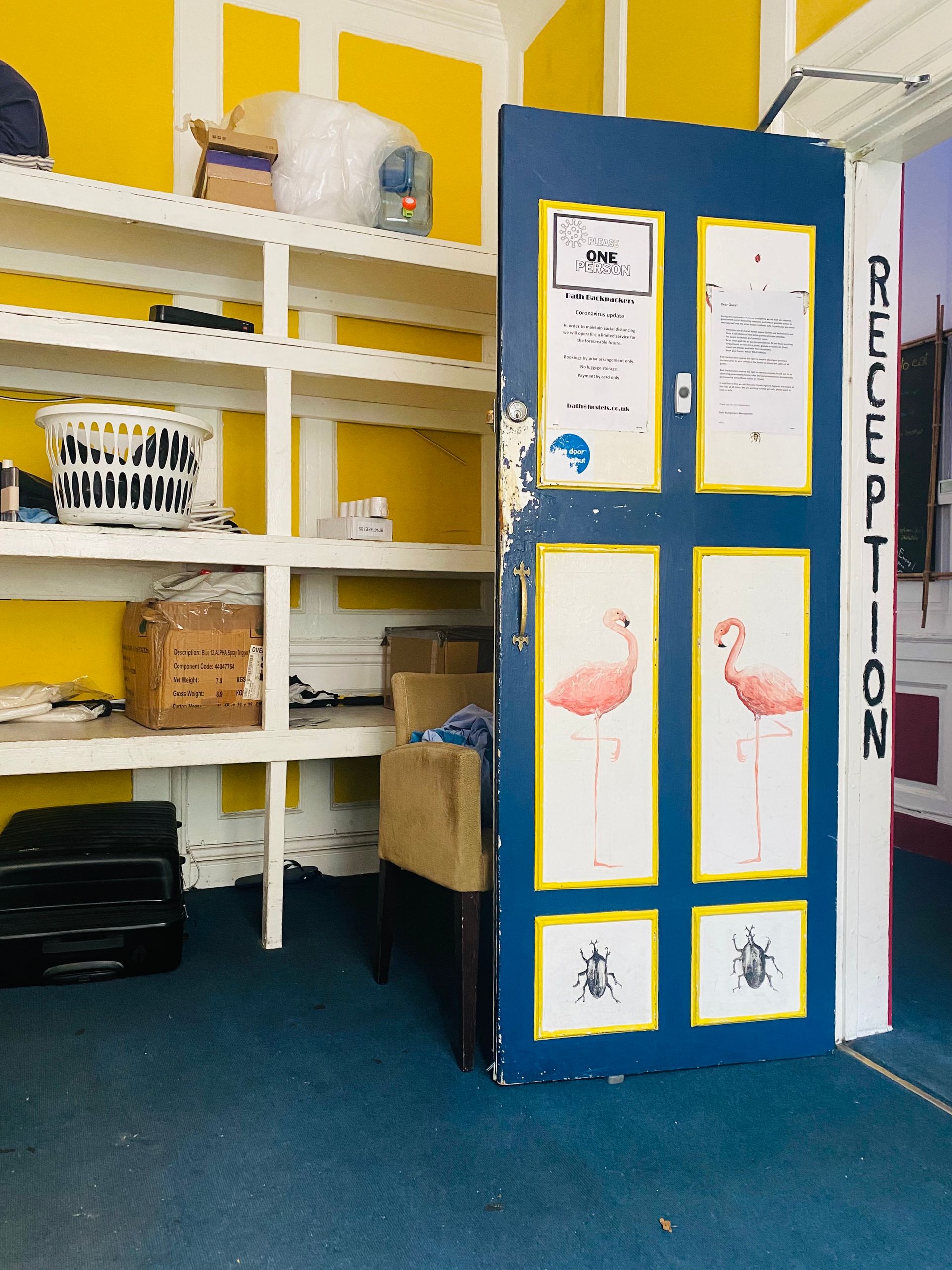
We spent long hours, day after day, in the Vaults, sanding the doors one by one, readying them for a return upstairs. As if it were a patient on the operating table, Chris would inspect each door, feel its surface, see what measures were needed to restore it to health and give it strength for years to come. Aris polished what we learned to call the ‘door furniture’ - the handles, plates and knobs. Then, with the doors reinstalled upstairs, Julia and Nicky painted each of them in turn.
With the doors now ready, we chose our favourite local spots to name our rooms. Guests from all over the world stay at Bath Backpackers, so we needed words that are easy to say and read if English is not your first language. Aris perfected the signs themselves, refining the typeface, picking colours, choosing wood with our carpenter friend, and eventually making a prototype: ‘Reception’. It worked. Everything was ready. We finally granted our rooms their new names, and as our first guests checked in to Pulteney (formerly Caesar) we all felt proud.
Each name now evokes a walk we especially like: along the famous Cotswold Way from central Bath and over the hill to Bath Cheese Farm at Kelston; the canals, fields and beautiful views of Bathwick; an ancient fort and East Bath panorama from Solsbury (also the Solsbury Hill of Peter Gabriel’s famous song). Walcot and Moorland are neighbourhoods we love to visit and stroll around, visiting their charity shops, cafes and pubs. And the Avon is our local river.
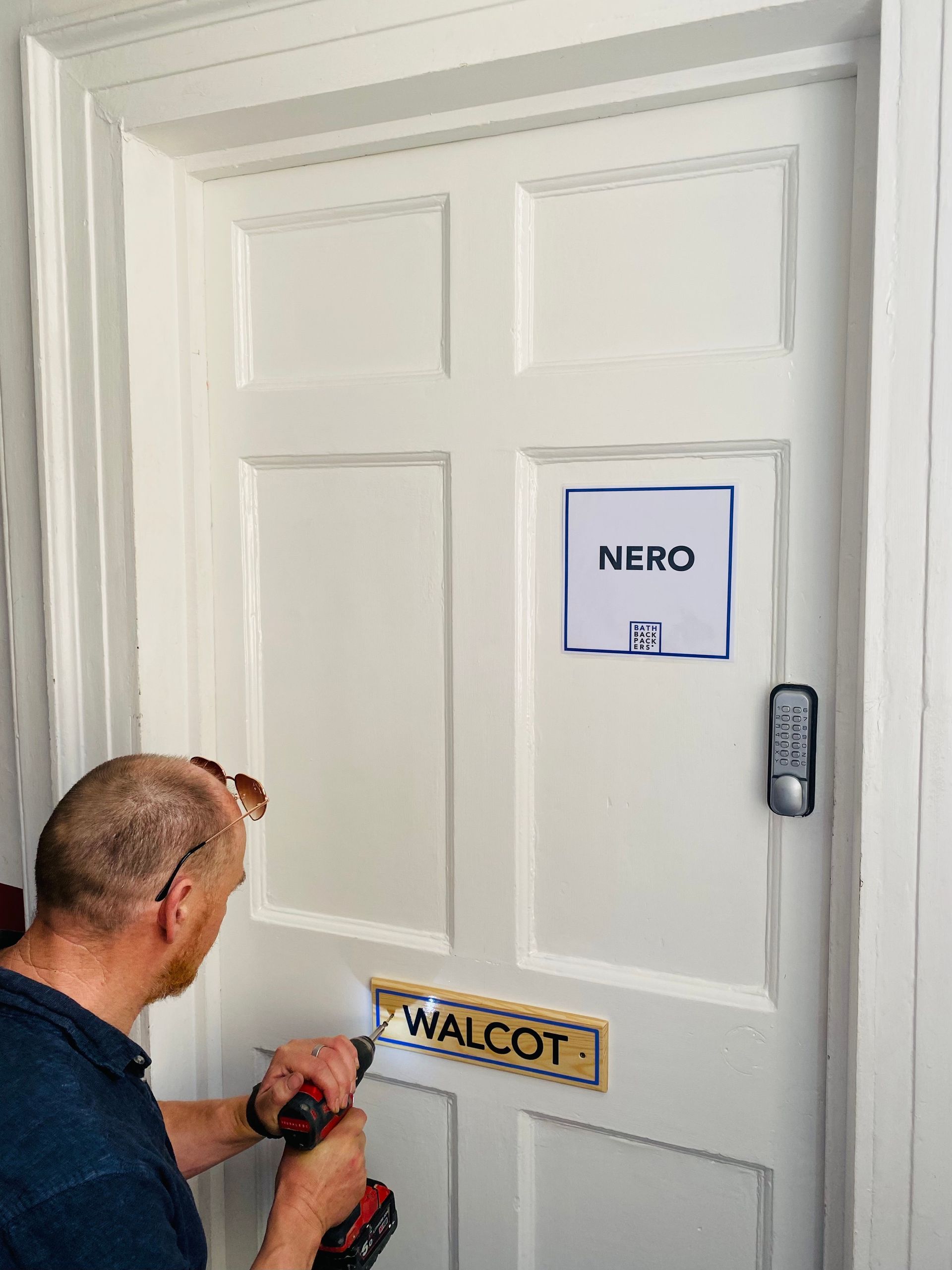
Then there’s Pulteney. Beautiful bridge, lovely grand street, nice little local loop walk. What we didn’t know when we named our dorm was that William Pulteney himself, the man who paid for the buildings which took his name (in fact he paid with his wife’s money, and took her name - he was born William Johnstone) was a Member of Parliament and prominent supporter of the transatlantic slave trade. I learned this on a guided walk in Bristol, a city whose recent debates about the name “Colston” and the removal of his statue received global coverage.
On discovering this dark history, we realised we had better investigate the meaning of all our new room names. It turns out that most are drawn from ancient words connected to landscape, though Dundas - the only other name that originally derived from a local personage - is a bit suspect. Dundas Aqueduct is a great place for a river swim when it’s hot and the water is clean. But Charles Dundas - another politician who gained his fortune through marriage - voted in parliament that India should be governed from London.
We have decided to keep the name Dundas - he’s not our favourite person, but he was a rather ineffectual politician so had no great influence. Pulteney, however, has to go. We don’t want a room named after someone who powerfully supported the slave trade. So we’re replacing Pulteney with Widcome: a name meaning a wide valley, and the start of the steep walk to Alexandra Park, just 20 minutes from the hostel and offering one of the best views of Bath. When you arrive at the viewpoint, look across the city at the hill opposite. You might just spot the glinting gold spire of Beckford’s Tower, built by William Beckford, a man whose wealth came from ownership of enslaved people.
As Bath begins its reckoning with the city’s colonial links, the sources of its riches and the political stances of its grandees, we aren’t alone in questioning what to do about connections that draw on unethically-gained wealth or standing. If you want to learn more, you can look up Bath’s Uncomfortable Past, the Bath and Colonialism Archive Project, and of course Beckford’s Tower.
